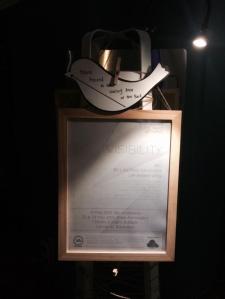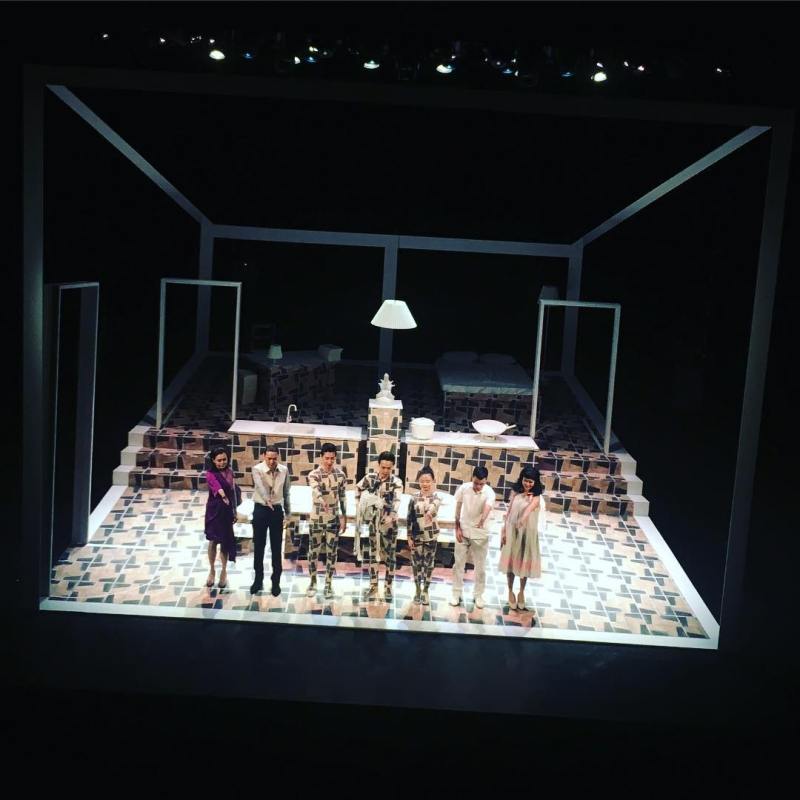 Though I have long accepted and taken the view that light design and text script are two very different mediums of narrative, I still found myself during first 10 minutes or so of Woan Wen’s In/Visibility 看/不见 trying to associate her light changes to specific parts of the original play.
Though I have long accepted and taken the view that light design and text script are two very different mediums of narrative, I still found myself during first 10 minutes or so of Woan Wen’s In/Visibility 看/不见 trying to associate her light changes to specific parts of the original play.
I guess I wouldn’t be the only audience (those who had watched or read Quah Sy Ren’s Invisibility, and may have come to Woan Wen’s solo show because of the script) falling into this habit.
In a casual chat after the show, Woan Wen revealed that she did initially consider including the text of the script as an element in this show, as she took into consideration of the mission of venue sponsor, Centre 42, in promoting written work. It was after discussion with Centre 42’s executive director, Casey Lim, that she freed herself from that sense of obligation. (On Centre 42’s The Vault programme website: The Centre invites artists and practitioners to respond critically and personally to canonical Singapore classics, lesser known pieces and rarities, reworks and adaptations, and cross-cultural and cross-genres works. )
I want to applaud Centre 42 and Casey for such openness towards written work. Words, written or spoken, has always been a heavily relied-on medium of expression and communication that we have become insecure towards other sensory experience. We have become lost many times in performances with little or no words. Words have such contradictory power in both liberating and imprisoning our imaginations.
As I tossed away my futile attempts of associating the light changes to the written text, new journey began. In the small theatre of Centre 42, 10 audience would decide where they sat or stood, or to move about throughout the entire performance. As the light changes, audience would be shone on or not. One could decide if he/she want to stay in the light, move out of the light, or partially lit on. One could choose to observe the space/audience in the light, or peep into those in the shades. As we felt the light falling onto us, did we become more conscious of our body/facial expression? As the light changes the pattern of shades inside the theatre, which ones lured us into, or out of the light? Do we have an active or passive relationship with the light?
I believe there is a protagonist A (of Invisibility) inside each of us, who wants to learn from a hermit the craft of invisibility, and stay unseen. Sometimes. Just sometimes.
In/Visibility 看/不见 gave me a journey of Invisibility without a visible word.



